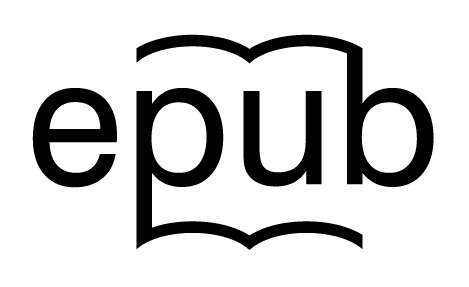The Digital Reader |
- Russia’s Cold eBook War Could Soon Turn Very Hot
- Zola Books Cooks up a Sale Over Amazon-Hachette Conflagration
- eBook Architects’s Epub Validation Tool Launches into Open Beta
- Medium App Grows Up, Now Available for the iPad
- PSA: Monopoly, Monopsony, and Amazon
- Check Your Calendar: Hachette-Amazon Contract Dispute Started in November 2013
- Dynamite Comics Settles Bogus Trademark Lawsuit Over John Carter of Mars
| Russia’s Cold eBook War Could Soon Turn Very Hot Posted: 23 May 2014 06:20 PM PDT
Ozon.ru, one of Russia’s largest web retailer, picked up an investment in the Russian ebookstore LitRes last week. And it was only today that Ulmart, Russia’s other largest web retailer, backed a $3 million Series A funding round in the subscription ebook service Bookmate (press release). LitRes and Bookmate have very different business models, but they each now have the backing of a major retailer, and that is going to make them serious competition to the Kindle when it launches in Russia (my guess) some time in 2015.
The $5 million that LitRes raised last week was the second round of financing in the past year; they also raised $5 million in October 2013 from investors including the Russian Internet Technology Fund. Last week’s money comes from Ozon.ru, a web retailer with $250 million USD in revenue in 2012. Ozon.ru, which just raised $150 million in capital last month, presented the deal as a way “to further develop its digital content offer, to strengthen LitRes's leading position on its market, and to consolidate efforts to develop a legal e-book market in Russia.” It’s not clear how LitRes will use the new funding, but I do know that they currently have two international competitors. iBooks and Google Play Books have each launched a local ebookstore in Russia. All of this investment comes in anticipation of a burgeoning market. The Russian ebook market is estimated to have reached $15 million last year, less than 1% of the overall Russian book market.
Bookmate offers an ebook subscription service. With a catalog of 400,000 books and deals with over 300 publishers globally, Bookmate boasts a userbase of one and a half million active monthly users in Russia, the Ukraine, and Kazakhstan. That is more than double the 600,000 subscribers they had in February (according to the email they sent me at the time). Around 7% of Bookmate’s users are paying subscribers who fork over $5 a month. Other than the paying customers, it’s not clear what their business model is. But the press release does say that “Bookmate connects publishers and authors with new markets and monetization channels by partnering with Mobile Network Operators (MNO's), Device Manufacturers, online retailers and local government”, whatever that means. Bookmate’s expansion plans are explicitly aimed at non-US markets. According to James Glynn, Bookmate’s spokesperson: “We aren’t trying to be an ebook subscription service for the already crowded US market, (Oyster, Scribd and Entitle are already there and established)…but for the rest of the world,” he told me in an email. “We are especially focusing on emerging markets and taking the experience we have learnt from the Russian market to new markets in 2014. It’s a proven model that opens up new revenue streams for publishers in emerging markets and it is a great reading experience that encourages users to discover new books.” Bookmate has launched in Turkey and plans to expand into Scandinavia and Latin America by the end of 2014. In a way, LitRes is the local Russian competitor that Amazon is going to have to worry about while Bookmate is both a local and global competitor that Amazon and Scribd will have to worry about – Nuvem de Livros as well, given Bookmate’s plans for Latin America. That Brazilian ebook subscription service may be based in Brazil but it too has announced plans to expand into Latin America in 2014. image by BBM Explorer The post Russia’s Cold eBook War Could Soon Turn Very Hot appeared first on The Digital Reader. |
| Zola Books Cooks up a Sale Over Amazon-Hachette Conflagration Posted: 23 May 2014 01:56 PM PDT
This indie ebook retailer announced on their blog Friday afternoon that they are having a sale on Hachette titles:
It’s not clear just how many titles from Hachette can be found in the Zola Books store. The blog post links to a list of 31 titles, but since these ebooks appear to have DRM I would bet that Zola Books carries the entire Hachette catalog. Update: I just heard back from Zola Books: they carry around 12 thousand Hachette titles. According to the FAQ, the ebooks can be read in Zola’s apps for iPad and iPhone. The post Zola Books Cooks up a Sale Over Amazon-Hachette Conflagration appeared first on The Digital Reader. |
| eBook Architects’s Epub Validation Tool Launches into Open Beta Posted: 23 May 2014 12:20 PM PDT Epub Between each of the major ebook platforms adding their own features to the “common” Epub format and Epub3 support still being incomplete and quirky two years after it debuted, it can be difficult for an ebook maker to craft an Epub file that works well everywhere. I can’t share a one size fits all tool for making ebooks, but earlier today a new validation tool which should be able to tell you why your ebook failed to pass muster at each of the major ebookstores. It’s called FlightDeck, and it is being launched today by eBook Architects. This tool goes beyond existing validation tools in that it not only identifies errors in Epub and Epub3 files, but it also promises to tell you whether each retailer will accept the file. Run your ebook through the FlightDeck website and it will spit out a unique “Retailer Acceptance Grid” which will tell you whether your Epub file will be accusers whether their EPUB files will be accepted by eBook partners including Amazon, Apple, Google, B&N/Microsoft, Kobo, and Net Galley. This checklist was developed with direct input from the ebook retailers and includes the same validation checks the retailers run when you upload a file to their servers. And in addition to validation, FlightDeck also enables users to edit the title, author, and other metadata in their Epub files. FlightDeck is going to be in beta for the next couple months so that users can provide feedback and help eBook Architects make plans for future enhancements and additions. The post eBook Architects’s Epub Validation Tool Launches into Open Beta appeared first on The Digital Reader. |
| Medium App Grows Up, Now Available for the iPad Posted: 23 May 2014 11:17 AM PDT
iPad users can now log in and read stories posted on the Medium site. You still cannot post new stories, and you can’t comment (Medium has no comment feature), but users can also follow other users and see what they are reading and writing. This update also enables readers to recommend stories and add a note which explains why. You can find Medium’s app in iTunes. Changelog:
Medium is a 2-year-old blogging platform launched by two of the original co-founders of Blogger (before it was sold to Google) and Twitter. It is a hybrid next-generation publishing platform which is in some ways also a publisher.
The post Medium App Grows Up, Now Available for the iPad appeared first on The Digital Reader. |
| PSA: Monopoly, Monopsony, and Amazon Posted: 23 May 2014 10:09 AM PDT What with Amazon beating up another supplier today, I thought it would be useful to take a few minutes and comment on the way in which many people are misusing the word monopoly. Many people like to throw around the label monopoly when talking about Amazon. Given that Amazon has somewhere around a third of the US book market, that claim is questionable at best, but when you point at Amazon mistreating their suppliers and call them a monopolist it is simply untrue. If you want to complain about Amazon having power over their suppliers, what you should be calling them is a monopsonist. The difference is pretty simple. A monopoly is a market in which there is only one seller, while a monopsony is a market with only a single buyer.
I know that some of you are thinking that Amazon is using their monopoly position in the retail market as a club to bully a supplier, in which case you can still say they are using their monopoly power. You could say that, but I think it is better to use the right word. Plus I just happened to like words, and since the topic of monopolies and monopsonies came up today I thought it would be fun to share the definitions. The post PSA: Monopoly, Monopsony, and Amazon appeared first on The Digital Reader. |
| Check Your Calendar: Hachette-Amazon Contract Dispute Started in November 2013 Posted: 23 May 2014 07:57 AM PDT Amazon’s The ongoing contract fight between Hachette and Amazon entered its Nth round today as the retailer removed the pre-order buttons for many Hachette titles. According to The Bookseller:
Not all of the details have been disclosed by wither Hachette or Amazon, but it is clear that Amazon is seeking to renegotiate their contract with Hachette. Amazon is playing hardball by reducing the number of copies they stock and by giving Hachette exactly what they wanted under Agency pricing: an end to discounts from the retail price. There are also reports that Amazon is selling Hachette ebooks at full price, though of course those cannot be delayed in shipping or stocking. News about the contract dispute first broke earlier this month in the NY Times, which hinted at the dispute having gone on for months. Michael J Sullivan concurred, reporting on DBW that he had seen this going on since February 2014. Now it seems that this dispute started even earlier than anyone had suspected. Earlier this week Kristin Nelson, an agent for a number of authors who have books with Hachette, wrote that she had noticed the stock issue as early as November:
While most stories today will focus on the buttons being removed, I think the more important story is just how long this fight has been going on. We’re now in month seven, and Amazon has tightened the screws again. I think we now know why Hachette’s parent company, Lagardère, reported a 5.3% drop in revenue in their publishing division last quarter. They don’t break out the revenue based on market (they have operations in France, US, UK, and elsewhere), so it wasn’t clear where the loss occurred, but I think we know. I don’t think that drop in revenue is a coincidence; Amazon is having an explicit effect on the company’s bottom line. Would anyone care to guess how big the drop will be in the next quarterly report? The post Check Your Calendar: Hachette-Amazon Contract Dispute Started in November 2013 appeared first on The Digital Reader. |
| Dynamite Comics Settles Bogus Trademark Lawsuit Over John Carter of Mars Posted: 23 May 2014 06:09 AM PDT
In 2012 the Burroughs estate, upset over Dynamite Comics publishing graphic novels based on Burroughs ‘s Barsoom stories which had already fallen into the public domain, filed a legally questionable trademark infringement lawsuit:
The Burroughs estate alleged that the covers and images in the Dynamite Comics editions damaged their existing trademarks. The works were described as pornographic, but if you ask me they were fairly close to the descriptions in the original books. Just so you know, Edgar Rice Burroughs died in 1950. The copyrights to all but 2 of his Barsoom books have expired in the US (the public domain works can be found on Project Gutenberg). This means that thanks to the recent lawsuit over Sherlock Holmes the Burroughs estate can only claim copyright over elements unique to those two books. Everything else, including the character of John Cater, is out of copyright. But trademark is another matter, and it is far from clear that one can successfully sue a publisher for damaging a trademark in this way. Alas, we’re not going to see this case argued in court. Earlier this week the Burroughs estate settled with Dynamite Comics. The exact details of the settlement have not been disclosed, and in fact the entire situation is obscured by the Burroughs estate also revoking a license granted to Marvel/Disney and signing a new contract wit Dynamite Comics. (That Marvel/Disney license probably covered, for example, the execrable 2012 John Carter movie.) And that is a pity, because I was hoping that this copyright troll would be taken down a notch or two. The Burroughs estate has a history of making questionable copyright claims. For example, in 2004 they sent a threatening letter to a New Zealand publisher over the use of Tarzan. Needless to say, the copyright had already expired in NZ, but even the threat of a lawsuit was enough to discourage the publisher:
Tarzan Presley, a book which is arguably legal to publish and sell even in the US, is not just out of print but it is also practically unavailable. The best price is $38 for a used copy on Amazon. And a few years after that the Burroughs estate also bullied the publisher of an RPG manual:
That case was resolved by the publisher forcing the Burroughs estate to back down, but the next publisher probably won’t be so lucky. Thanks to the Dynamite Comics contract, the Burroughs estate will continue to have funds to be a copyright troll, exacting a fee from creators who want to write new stories. Copyright may have been intended to encourage the creation of new works, but as you can see here it is used far too often by vultures and other middlemen to squash new works being created. If this isn’t a strong argument for shorter copyright terms, I don’t know what is. The post Dynamite Comics Settles Bogus Trademark Lawsuit Over John Carter of Mars appeared first on The Digital Reader. |
| You are subscribed to email updates from The Digital Reader To stop receiving these emails, you may unsubscribe now. | Email delivery powered by Google |
| Google Inc., 20 West Kinzie, Chicago IL USA 60610 | |
![1387630903_1dc12a170b_b[1]](http://www.the-digital-reader.com/wp-content/uploads/2014/05/1387630903_1dc12a170b_b1.jpg)




![carousel_retailers[1]](http://www.the-digital-reader.com/wp-content/uploads/2014/05/carousel_retailers1.png)
![medium-logo-150x150[1]](http://www.the-digital-reader.com/wp-content/uploads/2014/03/medium-logo-150x1501.png)


![Princess_of_Mars_large[1]](http://www.the-digital-reader.com/wp-content/uploads/2014/05/Princess_of_Mars_large1.jpg)
No comments:
Post a Comment